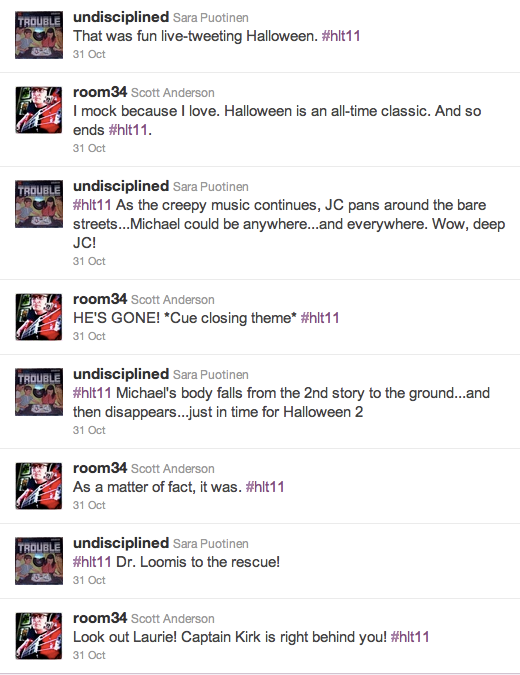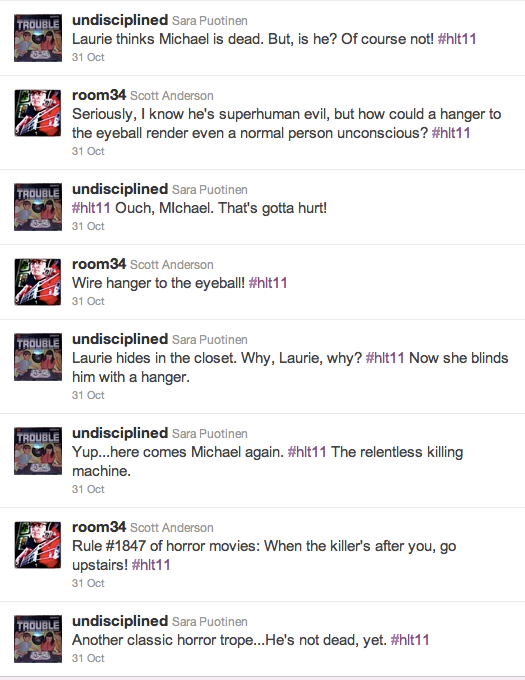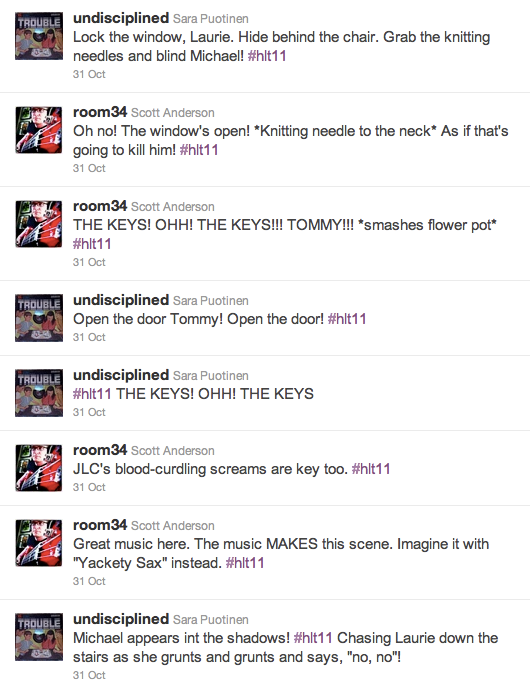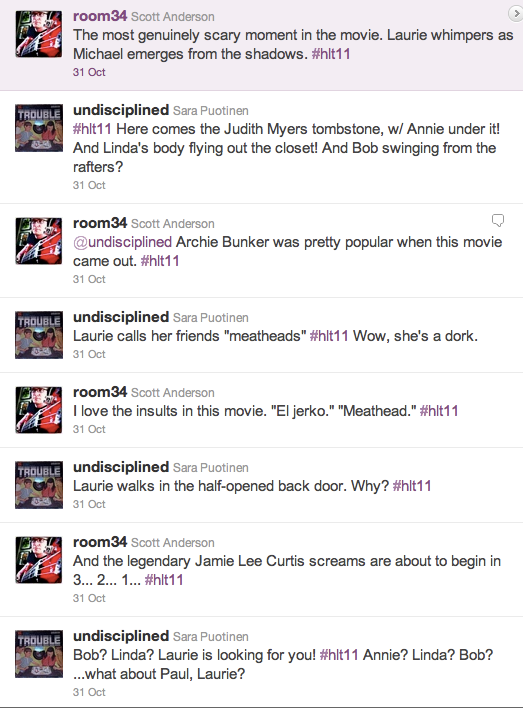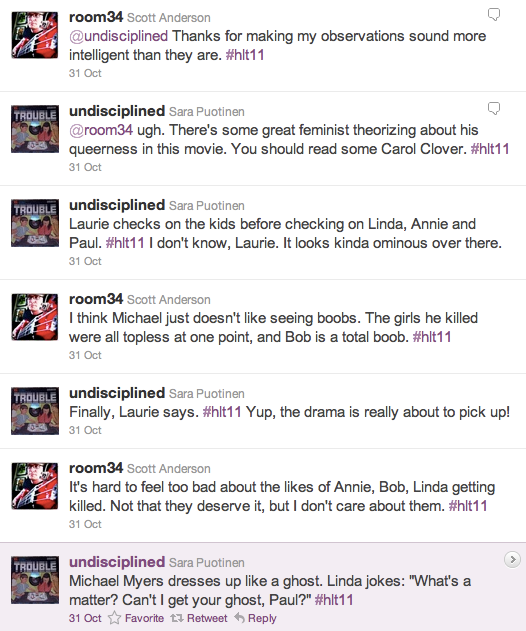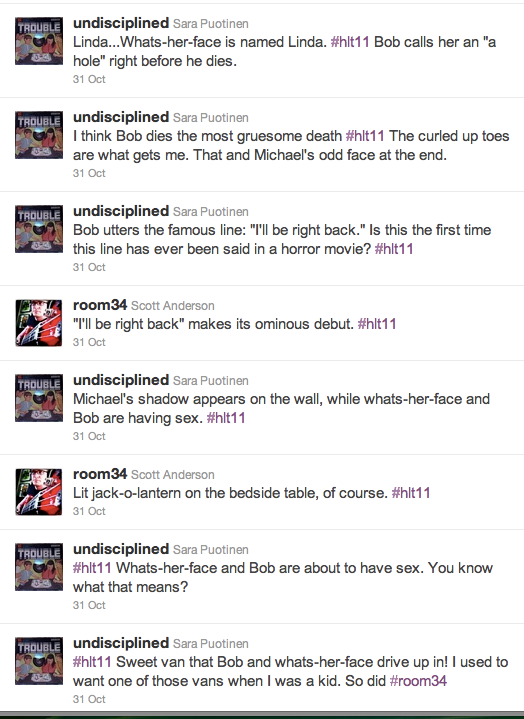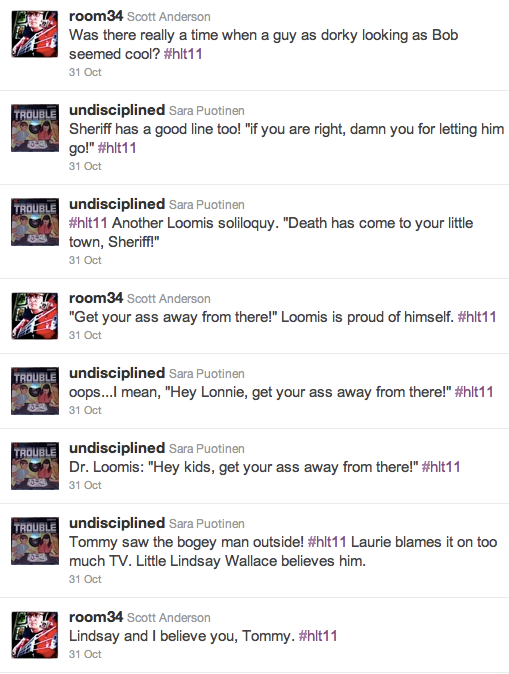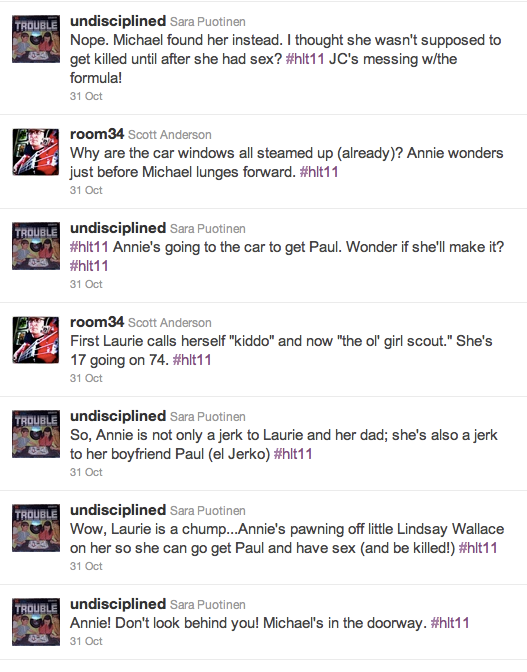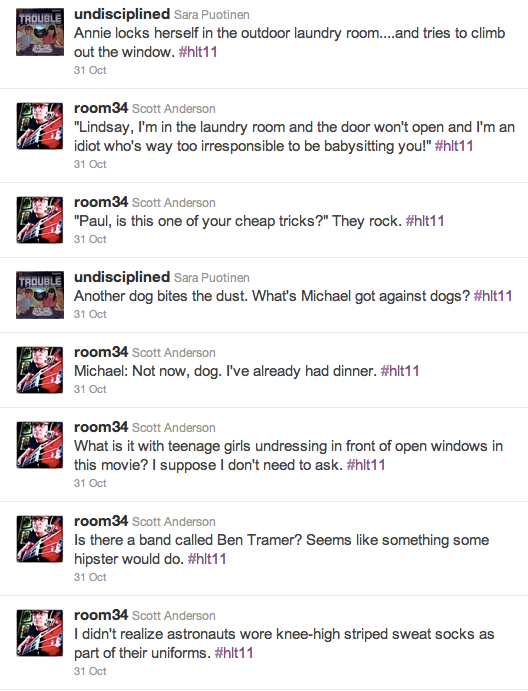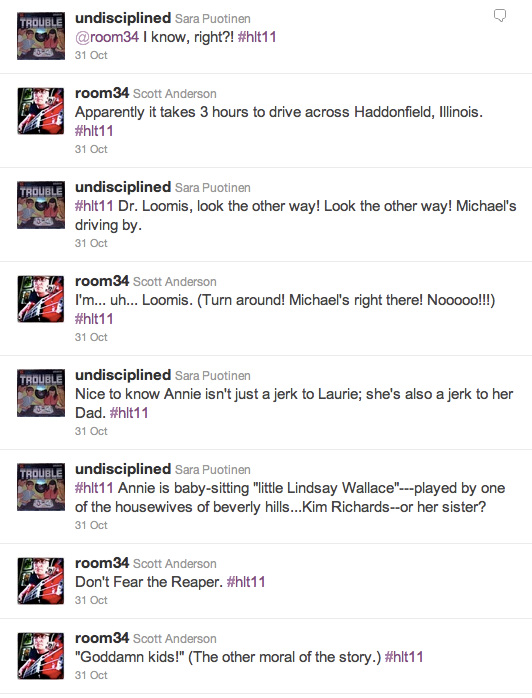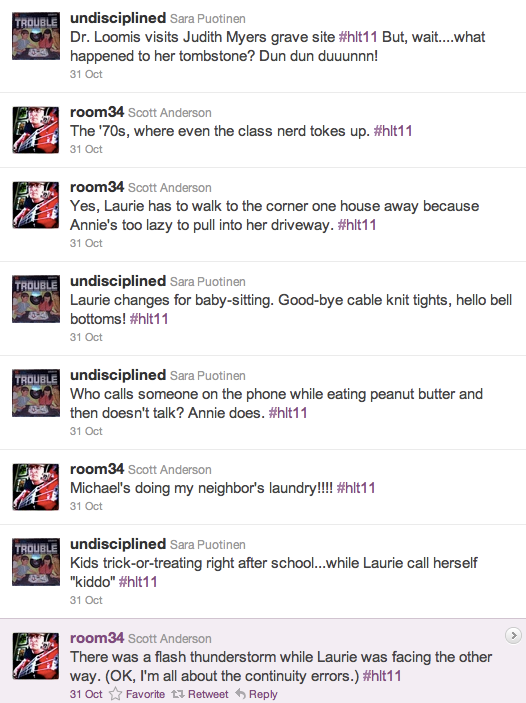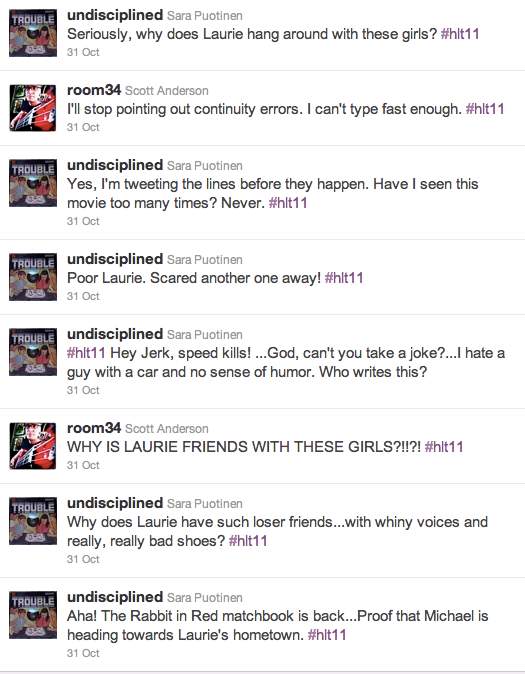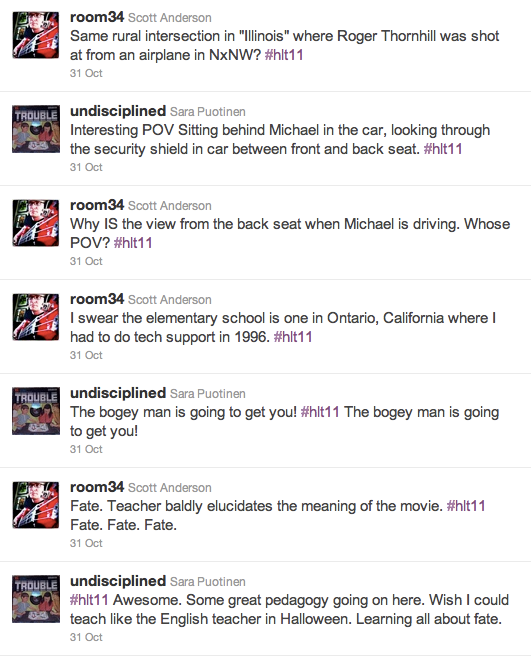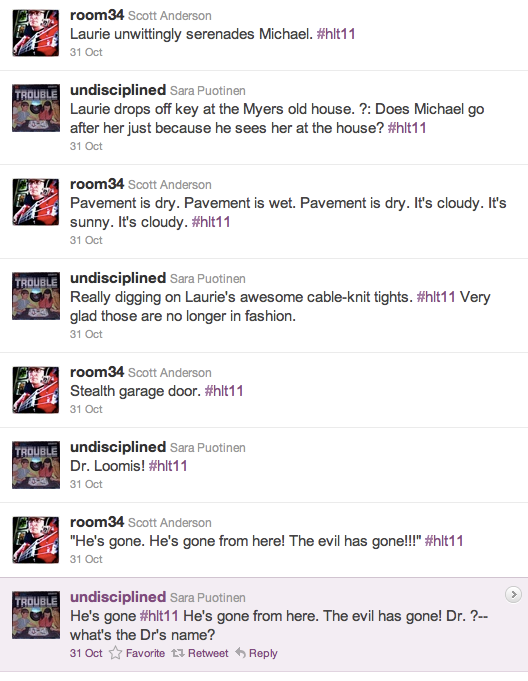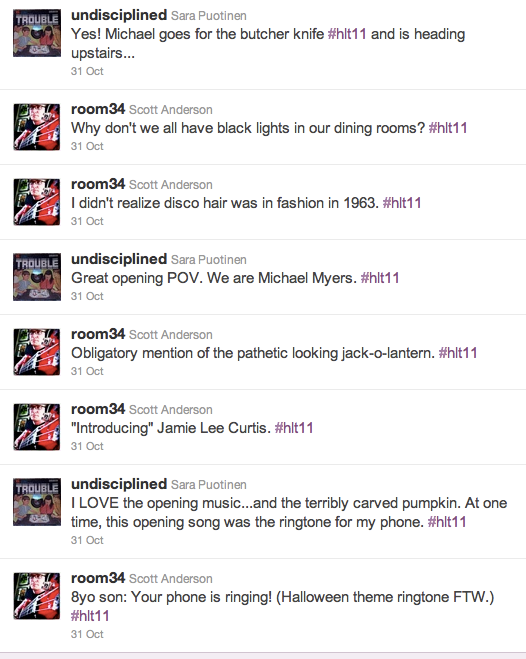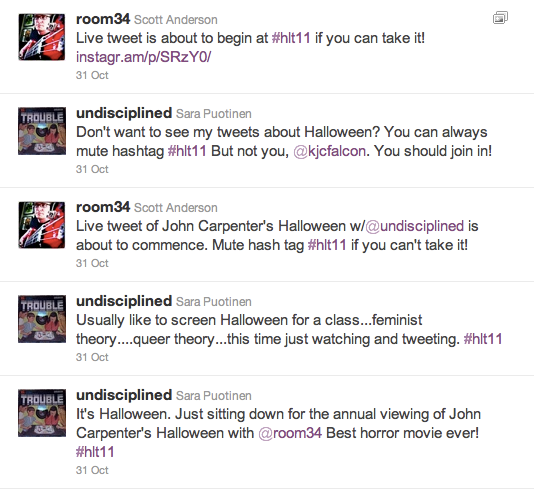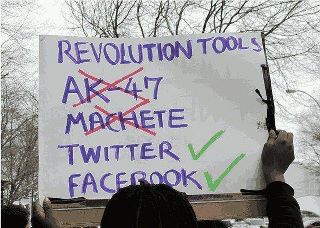I just finished an abstract for a special issue on online social networks and ethics. I put it together pretty quickly because I found out about the call for papers just a few days ago and the deadline was today (19 june). It’s partly inspired by my recent post on Bill Keller’s The Twitter Trap, more twitter hatin’ and conflatin’. Here it is:
ABSTRACT:
Does twitter turn us into distracted, uncaring, apathetic, disengaged, unethical citizens? Many critics seem to think so. In “Small Change: Why the Revolution Will Not Be Tweeted,” Malcolm Gladwell dismisses twitter as being unable to incite revolution and radical change and as only generating superficial, weak connections between individuals and communities. In “I Tweet, Therefore I Am,” Peggy Orenstein charges that twitter encourages us to become packaged selves who instantly and unthinkingly publicize our experiences and, as a consequence, are alienated from our own humanity. And in “The Twitter Trap,” Bill Keller laments that twitter reduces us to soulless narcissists who care more about spreading information and gaining notoriety than experiencing intimacy and forging authentic connections.
In all three of these articles, twitter is indicted as an online social network that threatens our ability to be ethically and politically engaged citizens. According to these authors, not only does twitter lack any ethical value, but using it can actually do harm to our ethical selves, making it increasingly difficult for us to think deeply and reflectively and to act responsibly and ethically within the world.
Is this an accurate assessment? Does twitter usage lead, in the words of Bill Keller, to the erosion of our souls? Yes and no. While twitter can encourage us to be superficial,apathetic or disengaged, it can also enable us to communicate meaningful narratives about our lives and to share those narratives with each other. And it can enable us to cultivate authenticity through how we express ourselves and document our experiences, how we engage with the world and its inhabitants, and how we create connections and form alliances with each other.
Challenging the claim that twitter is only a threat to our ethical selfhood, this essay explores how twitter participation–through posting tweets, following other twitter users, participating in online twitter conversations, sharing resources, reading others’ tweets to gain social/critical/ethical awareness–might contribute to ethical development and help guide online (and offline) practices in ways that are more engaged, authentic and ethical.
This essay will be divided into two main parts. In the first part, I will offer a brief overview of twitter, some of its key features and who (based on factors like race, class, age, and gender) is using it and how and why. I will also provide some background on four ethical perspectives from which to assess the ethical potential of twitter: the dignity and human rights perspective, the justice perspective, the virtue perspective and the feminist ethics of care perspective. Then, I will describe some general ways in which twitter might contribute to authentic expression, engagement and connection. In the second part of this essay, I will ethically evaluate three current examples of twitter usage, using the four ethical frameworks that I introduced in part one, and raising critical questions about whether or not they contribute to the fostering of ethical selfhood, especially in relation to authenticity. These three examples are: 1. Authentic expression and Angie Jackson’s live-tweeting of her abortion in February, 2010; 2. Authentic engagement and the use of hashtags, like #WeAreAlabama, to spread awareness and information about the tornados in Alabama in April 2011; and 3. Authentic connection and Joel Johnson’s promotion in Gizmodo of “stalking a sexy black woman” on twitter in order to learn more about people and cultures very different from your own in July, 2010.
Each of these examples raises important and difficult questions about ethics, authenticity and twitter. In live-tweeting her abortion, Angie Jackson claims that her goal was to honestly document her experiences using RU-486 in order to “demystify” abortion for others. Is this live-tweeting an authentic expression of someone striving to grant dignity to her experiences (and the experiences of other women) of having an abortion or is it as an example of someone with “bad manners” whose only interest is in gaining public notoriety?
Hashtags like #WeAreAlabama were used to spread awareness and mobilize individuals and communities who wanted to learn more about how they could help victims of the Alabama tornados. Do these hashtags enable twitter users to have authentic engagement with those communities, allowing them to bear witness to the devastation and to contribute in meaningful ways to the relief effort? Or do these hashtags, and the information they provide, encourage twitter users to remain passive and disengaged as they falsely believe that merely reading stories and donating money via twitter links enables them to think that they are “doing their part”?
Finally, Joel Johnson encourages us to follow the twitter feeds of people who aren’t like us in order to “experience the joy of discovery that can come by weaving a stranger’s life into your own.” Does following a stranger on twitter and reading tweets about their life enable us to learn more about them and care about and for them, thereby resulting in the development of an authentic connection with them? Or does following someone on twitter resemble stalking and only lead to the most superficial of connections?
So, that’s it. Like I said, I put it together pretty quickly. I’m not happy with my abrupt ending, but I like the argument and analysis that I’ve come up with–although I don’t like how the questions I pose about the three twitter “moments” create an either/or binary. In ethically evaluating these moments, I am not interested in drawing such easy conclusions–that they are either good or bad, this or that. Instead, I would like to explore the ethical difficulty of understanding these moments as possibly allowing for authentic and inauthentic expressions, engagements and connections. Oh well, I will change these questions in my extended draft. Whether or not this article is accepted, I will have fun writing it!


